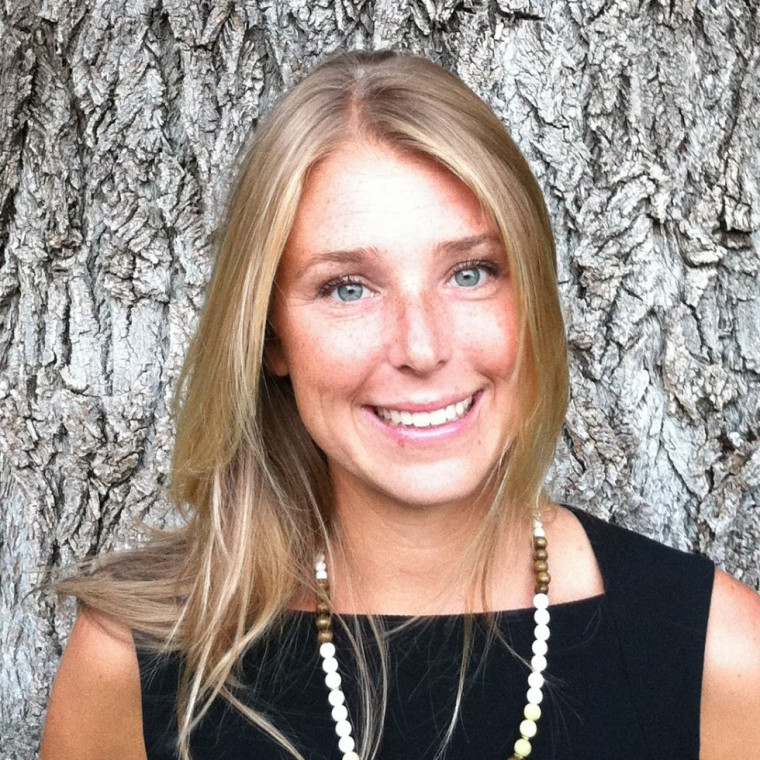Elizabeth Bennett
L&C is a place where people express care, extend support, and nurture one another. Inclusion, accommodation, diversity, and difference are valued here.

Pronouns
Title
Department(s)
What three words would you use to describe Lewis & Clark?
How do you describe the liberal arts?
The liberal arts college is where narrow thinking goes to die. Art needs chemistry, math finds music, religion demands metaphysics … somewhere in these “in-between” spaces is where the human spirit thrives.
What do you enjoy most about Lewis & Clark students?
Their fervor! And curiosity! The bountiful energy and awakened spirits! L&C students’ vibrancy and passion for life is so evident here.
How does Lewis & Clark prepare students interested in your field to pursue a career and/or advanced studies after graduation?
The international affairs department and political economy program do not teach students what to think but instead how to think. Students learn to welcome and integrate rapid-fire news and alternative perspectives into their foundational knowledge—a skill that will allow them to stay current, well-versed, opinionated, and active in global affairs over the course of their lifetime.
What sets your department or program apart from other small liberal arts colleges?
The international affairs faculty take pride in the diversity of their perspectives, research methodologies, and approaches to teaching. Each semester, we highlight our disagreements and love for informed, excited, respectful debate by hosting a roundtable on an important, contemporary, contentious issue. Students are invited to provoke and participate! In our department, curiosity trumps contempt and diplomacy is demanded.
What should incoming students know about L&C?
L&C is a place where people express care, extend support, and nurture one another. Inclusion, accommodation, diversity, and difference are valued here.
What’s your favorite spot on campus?
Several years ago, on my drive to Oregon to begin my position at Lewis & Clark, I purchased a tiny Redwood tree. I raised it in a pot for several years before planting it near the historic reflecting pool on campus. My yellow Labrador, Rhubarb, and I visit it often and enjoy watching it grow. The beauty of this campus is astounding.
What’s your favorite thing about living in Portland?
Portland is 90 minutes west of skiing, 90 minutes east of surfing, and the Portland Art Museum (PAM) has a phenomenal contemporary art collection.
What’s the best thing about conducting research with students?
Because the College of Arts and Sciences does not have graduate students, undergrads are first in line for phenomenal opportunities to work with faculty on cutting-edge research. It’s an amazing opportunity to show them how knowledge is made.
What should incoming students know about your research?
My research focuses on how to improve labor conditions and human rights in global supply chains. Recently I’ve been invited to participate in advisory group at the United Nations. I really enjoy sharing insights from my research with scholars and policy makers from all over the world and participating in conversations about how to make the world a more just, equitable, and peaceful place. In the spring semester, I teach a three-hour evening seminar for international affairs majors called Social Justice in the Global Economy, where we discuss similar topics and I can share with my students insights from time with the United Nations.
What’s one of your best L&C memories?
During the pandemic (2020–21), Lewis & Clark offered students the opportunity to come to campus and learn in person. At first, I was very skeptical about how I would teach a class with some students in the room, others on Zoom, using multiple cameras, distancing, wearing a mask … I thought it might be awful. In fact, those were some one of the most focused, interesting, engaged, and productive classes I’ve ever led! It was such a relief to be able to come together in community to discuss international affairs, social justice, global supply chains, and political economy in the context of such a catastrophic event!
Share something you think your students would be surprised to learn about you.
I haven’t watched television in almost 25 years. Reality (and books) are too much fun!
More Admissions Stories
Admissions is located in Frank Manor House on the Undergraduate Campus.
MSC: 32
email admissions@lclark.edu
voice 503-768-7040
fax 503-768-7055
Vice President of Admissions and Financial Aid
Eric Staab
Admissions
Lewis & Clark
615 S. Palatine Hill Road MSC 32
Portland OR 97219

